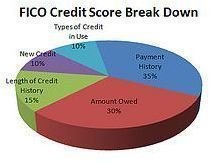Why do Businesses Run an Employee's Credit Report?
What’s In a Credit Report?
Credit reports contain such information as your full name, alias or maiden names you’ve had in the past, addresses where you’ve lived, your social security number, date of birth, and your employment history.
It also provides information on credit loans including credit cards, mortgages, auto loans, and if you are prompt in paying your credit obligations. Finally, a credit report will show any credit items that are in collection, delinquent or if you have any public liens, judgments or lawsuits against you.
Everyone should check know the importance of checking their credit report from time to time.
Who Provides Credit Reports?
There are basically three credit reporting companies: TransUnion, Equifax, and Experian. You can obtain a copy of your credit report for free annually by visiting the Federal Trade Commission. Steer clear of companies and websites that say they will run your credit report for free but ask you to enroll in their credit-monitoring program for a fee.
Why Do Employers Want Your Credit Report?
When you’re applying for a job or have made it to the interview stage, you may wonder why businesses run an employee’s credit report and what does it say about you? There are a few reasons why employers use a credit report as a tool for hiring.
First, a credit report will reveal if you have used any aliases in the past. It also offers alerts for social security numbers and names that don’t match or appear fraudulent. When employers find serious alerts on a credit report, they can use this as decision-making process on whether to hire or not.
Employers take a look at your credit history and if you pay your monthly credit obligations on time. Why? Often, employers feel if you are responsible with your credit and keeping your credit in good standing, to them, it means you will be dedicated and committed as an employee.
Finally, because your credit report shows your employment history, an employer can utilize the information in the credit report on your employment and compare it to your resume or the job application your completed. This is to ensure you did work where you stated you have in the past.
Tips On Credit Reports
Here are some basics you should keep in mind regarding credit reports:
- Credit Inquiries – Every time an organization runs your credit report, your score drops by one point. Avoid having your credit report run over and over again. The only time inquires don’t appear on credit reports are when you request a copy through one of the credit bureaus directly for a fee or free from the Federal Trade Commission. If your credit score is at the bottom of the average end, credit inquires and point score lowering may push you from average to fair or even poor.
- Credit Repair Agencies – Many credit repair agencies tell you they can help you improve your credit score. They can do this, for a fee, but it is nothing that you can’t do on your own for free. To begin, call each of the creditors where you are past due and make payment arrangements, ask for a lower interest rate, or ask if they will take a partial payment and consider the debt paid in full.
- Credit Report Permission – If you complete a job application, be sure to read the fine print where you sign your name. Usually this fine print will contain verbiage that states the potential employer may run your credit report upon your signing of the job application. If the employer’s job application does not state they will run your credit report and they do, without your permission, you need to confront the employer on this issue. Also, if you submit your resume only and do not fill out an employer’s job application, ask in the interview if the employer plans to run your credit report. If they say they will need to, ask them to prepare a statement you can sign giving them permission to do so.
Credit Reports and Job Opportunities
The next time you wonder, why do businesses run an employee’s credit report, you’ll have a better understanding of how they use this as a hiring tool. A credit report that is free of alerts or much delinquency can sometimes make the difference in whether you get the job or not.
